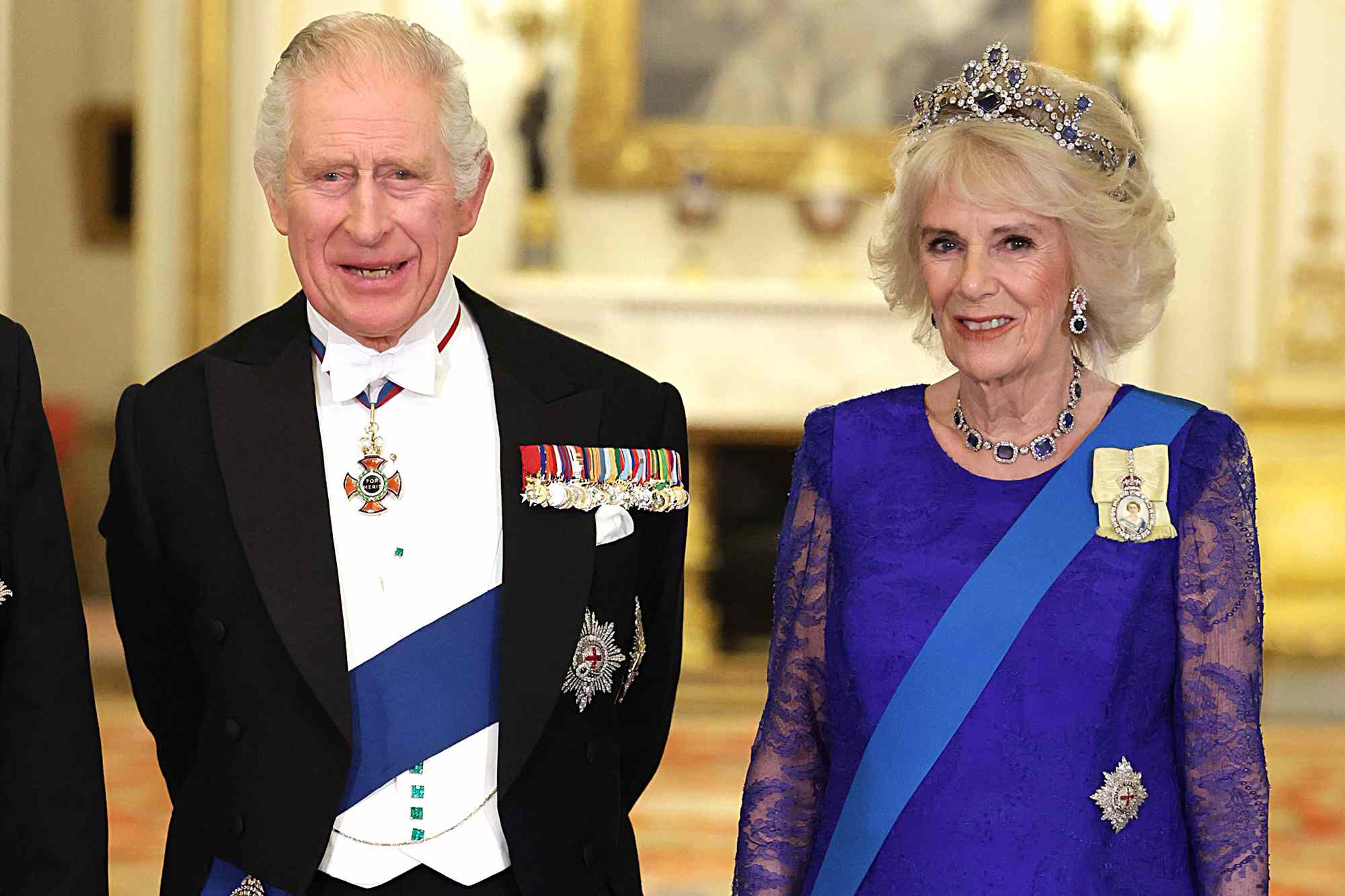King Charles III’s reign has ushered in a significant chapter for the British monarchy, an institution steeped in history yet increasingly compelled to adapt to contemporary expectations.
As a symbol of continuity and national identity, the monarchy has faced numerous challenges throughout its existence.
These challenges have put to the test the institution’s ability to stay relevant in a rapidly changing world, making Charles’ reign a crucial focal point in this ongoing struggle between maintaining tradition and embracing change.
Upon ascending the throne, Charles found himself tasked with the dual responsibility of upholding time-honored customs while also implementing innovative strategies that would ensure the monarchy’s continued relevance.
This balancing act has been particularly evident in his strategic reshaping of roles within the royal family.
Central to these decisions is the elevation of Prince William and Princess Catherine, a move seen as a calculated effort to secure the monarchy’s future in the face of evolving societal norms.
However, this shift has not come without its complications, especially for Queen Consort Camilla.
Her position in the royal hierarchy has become increasingly tenuous as the spotlight shifts toward the younger royals.
Camilla, who has long been a figure of both fascination and controversy, navigated a tumultuous public perception stemming from her relationship with Charles during his marriage to Princess Diana.
Once vilified as “the other woman,” her eventual marriage to Charles in 2005 marked a turning point, setting her on a challenging path toward public acceptance.
Over the years, through diligent public relations efforts and her commitment to various charitable endeavors, Camilla has gradually transformed her image.
By the time Charles took the throne, she had achieved a degree of acceptance within both the royal family and the public.
Yet, her role as queen consort, while prestigious, has proven to be fraught with challenges.
Traditionally, queen consorts have played supportive roles, influencing decisions behind the scenes while representing the crown at ceremonial functions.
For Camilla, becoming queen consort was the culmination of years of struggle and adaptation.
She likely anticipated a significant influence within the monarchy, but the reality has been different.
Charles, known for his forward-thinking vision, has chosen to delegate many responsibilities to William and Catherine, signaling a generational shift within the royal family.
Their increasing prominence in public duties has left Camilla feeling somewhat sidelined, a reality that has been difficult for her to accept.
The growing popularity of William and Catherine, particularly among the British public, has only intensified the dynamics within the royal family.
The younger royals are often viewed as more relatable and modern, garnering adoration that starkly contrasts with Camilla’s more mixed reception.
Catherine, in particular, has emerged as a beloved figure, admired for her grace and dedication, further overshadowing Camilla’s contributions.
The emotional toll of these developments on Camilla cannot be overlooked.
After working hard to secure her place within the royal family, the recent shifts in responsibilities have likely left her feeling unappreciated and undervalued.
Her exclusion from key roles in favor of the younger couple has sparked feelings of frustration and insecurity, as she grapples with her place in a monarchy that appears to be moving forward without her.
Camilla’s struggle also highlights broader themes of gender and power within the monarchy.
While the title of queen consort carries prestige, it has historically been one of support rather than leadership.
Like many consorts before her, Camilla finds herself constrained by tradition and public expectations.
Despite her status, her influence remains limited as the monarchy increasingly focuses on the younger generation.
King Charles‘ decision to elevate William and Catherine reflects his understanding of the need for the monarchy to evolve.
Unlike his mother, Queen Elizabeth II, who was known for her unwavering commitment to tradition, Charles has shown a willingness to embrace change.
His approach to royal governance is rooted in innovation, and by placing William and Catherine in prominent roles, he aims to ensure a smooth transition of power while tapping into their widespread appeal.
However, this strategic move has created tensions within the royal family, particularly for Camilla.
The dynamics of their new roles have undoubtedly affected her personal relationship with Charles, who must now balance the demands of the crown with the intricacies of family dynamics.
As king, Charles faces the challenge of distributing royal responsibilities while maintaining harmony within the family.
The uncertainty surrounding Charles’ health adds another layer of complexity to Camilla’s situation.
The prospect of a future monarchy led by William and Catherine raises questions about her own role within the institution.
The fragility of her position is underscored by the possibility of being further sidelined in a monarchy that is increasingly focused on the younger generation.
In light of these developments, Camilla’s reactions can be seen as a mix of personal disappointment, professional frustration, and existential anxiety.
Her fears of being marginalized within the monarchy are not solely about losing influence; they also reflect the potential instability of her position in the future.
As queen consort, she hoped to play a significant role, but recent events have left her questioning whether that expectation will ever be fully realized.
King Charles III’s reign is characterized by a complex interplay of tradition, modernization, and personal dynamics within the royal family.
His strategic decisions, while essential for the monarchy’s future, present significant challenges for Camilla as she navigates her place in this evolving institution.
As the monarchy continues to adapt, the tension between tradition and change will remain a defining aspect of Charles’ reign, leaving Camilla’s role in this shifting landscape uncertain.
Related Stories

